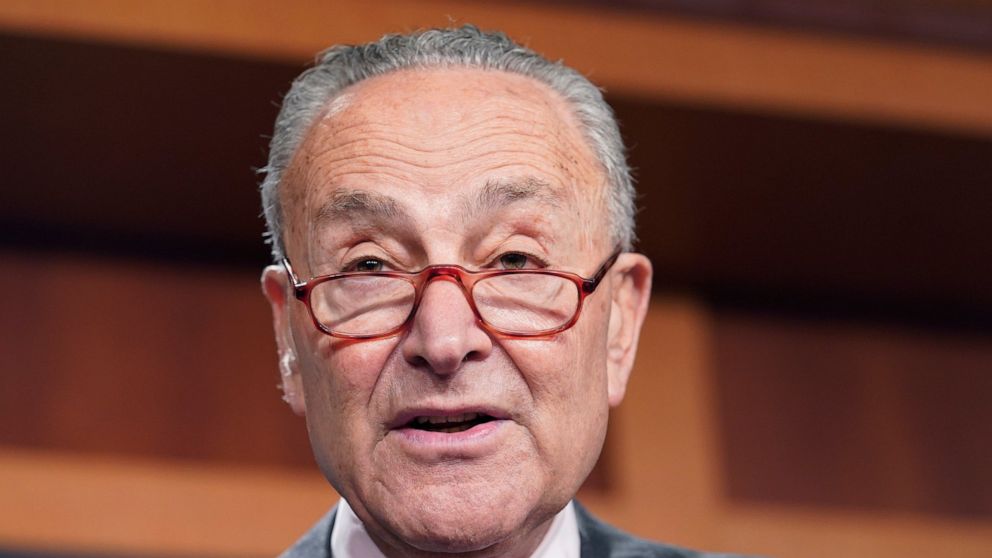WASHINGTON — Democrats pared part of their proposed minimum tax on huge corporations and made other changes in their giant economic bill, Senate Majority Leader Chuck Schumer said Friday, as they drove toward delivering a campaign-season victory to President Joe Biden on his domestic agenda.
In an unusual peek at closed-door bargaining, Schumer, D-N.Y., said Democrats dropped a proposed tax boost on hedge fund executives after pivotal centrist Sen. Kyrsten Sinema, D-Ariz., said she would otherwise vote “no.” Schumer said that in its place, the measure now has a new tax — which others said will be 1% — on the shares companies buy back of their own stock, netting the government far more revenue.
“Sen. Sinema said she would not vote for the bill” or even vote to let debate begin unless private equity tax was removed from the legislation, Schumer told reporters. “So we had no choice.”
He spoke a day after he and Sinema announced compromise revisions to the environment, health care and tax package. With final numbers still to be calculated, the overall measure raises over $700 billion in revenue — including more robust IRS tax collections — using most of it for energy, climate and health initiatives and reducing federal deficits by $300 billion.
The accord puts Democrats on the verge of a more modest yet striking resurrection of many of Biden domestic aspirations that appeal strongly to party voters. Those include taxing big business, restraining prescription drug prices, slowing climate change, helping families afford private insurance and trimming federal deficits.
In another change, Schumer said a proposed 15% minimum tax on mammoth corporations had been trimmed and would now raise $258 billion over the coming decade, down from $313 billion. That provision, which has been the legislation’s biggest revenue raiser, will now let those companies depreciate their equipment costs more quickly, lowering the government’s tax take and helping manufacturers who buy expensive machinery. The new tax is expected to apply to around 150 companies with income exceeding $1 billion.
Democrats plan for the Senate to begin considering the bill Saturday, and the House will return next Friday for votes. The measure is sure to face unanimous Republican opposition in the 50-50 Senate, where the backing of Sinema and all other Democrats will be needed for passage, along with Vice President Kamala Harris’ tie-breaking vote.
“This bill is a game…
Click Here to Read the Full Original Article at ABC News: Business…

